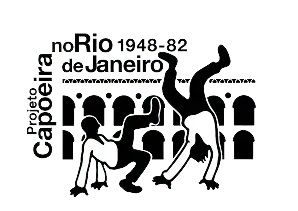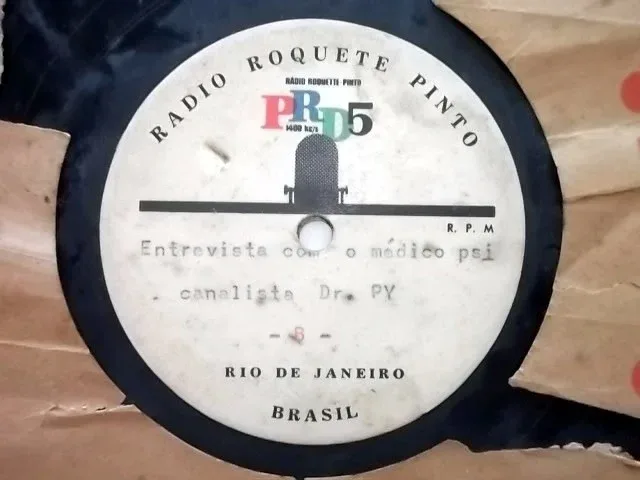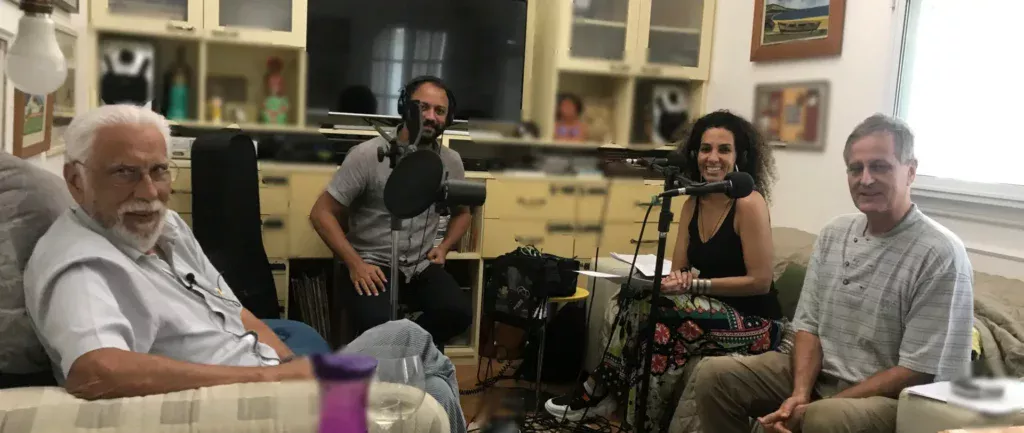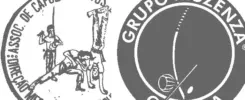In 1963 André Lacé created the first radio programme dedicated exclusively to capoeira - Rinha de Capoeira, broadcast on Rádio Roquette Pinto.
By Matthias Röhrig Assunção.
The first radio broadcast in Brazil was aired in 1923 by Rádio Sociedade. Initially a luxury item, radio reached millions of Brazilians in the 1940s. Depending on the time of day, it could be listened to by 20 to 40 percent of the population.
By the early 1960s, radio was part of the daily lives of Rio residents and only suffered heavy competition from colour television from 1972. It is at that stage that the journalist and capoeirista André Lacé created the first radio programme dedicated exclusively to capoeira, called Rinha de Capoeira (Capoeira Brawls). It was initially broadcast by Radio Roquette Pinto on Wednesdays, from the 20th of January 1963.
Three Bahians joined the first episode. They were Mestre Artur Emídio, from Itabuna, Bahia, the most famous and respected capoeirista in Rio at that time; Waldemar Santana, a well-known fighter who practiced capoeira as well as other martial arts; and Roland da Silva, one of Artur’s first students.
André Lacé recording the podcast for CapoeiraHistory.

Subsequently the program was aired on Sundays at 9:30 pm, with an average duration of 20 minutes. In addition to interviewing capoeiristas, André Lacé imparted knowledge about the traditions and history of capoeira. He also tried to do news reports on capoeira practice in Rio, gathering information in gyms, open rodas and baptisms.
He did not invite only capoeiristas, but also Physical Education teachers such as Lamartine; or folklorists such as Edison Carneiro and Teresa Chiaravalotti (from Buenos Aires) to comment on capoeira from a sports, folklorist or ethnologist point of view. The program lasted until at least September 1963. We do not know why it was discontinued.
Lorem ipsum dolor sit amet, consectetur adipiscing elit. Ut elit tellus, luctus nec ullamcorper mattis, pulvinar dapibus leo.
In this new segment André Lacé was able to interview many famous masters from Bahia and Rio. He invited Mestres Caiçara, Canjiquinha, Baiano da Bonfim, Moraes, Zé Pedro and many others to the programme.
In addition to the in-studio interviews, the new format also included external recordings, for example, news reports and the coverage of capoeira “baptisms”. Just like a football game at Maracanã covered by sports reporter, André Lacé recorded the music of some rodas live, commenting on what was happening and interviewing practitioners on the spot.
We are grateful to André for making some episodes of his programme available for CapoeiraHistory, as this is very rich material from the history of capoeira in Rio de Janeiro in the 1960s and 70s. .
With the help of radio host and singer Patrícia Ferrer, we interviewed Lacé so that he could give us more information about each episode and remember the backstage stories of the recordings.
The result is a six-episode podcast, each combining a current intro with an original recording. You can listen to them by clicking on the links below. Enjoy listening! Comments and clarifications are welcome.
Episódio 00
Information about the format of the CapoeiraHistory podcast. Testimony by André Lacé on his old programmes Roda de Capoeira and Rinha de Capoeira that were broadcast by Radio Roquette Pinto in Rio de Janeiro in the 60s and 70s.
Episódio 01
Listen to the first part of the conversation with Lacé about Master Caiçara and his importance in capoeira and then the reproduction of the original recording of the interview with Masters Caiçara, Zé Pedro and Moraes.
Episódio 02
It continues the conversation with Lacé about Master Caiçara, his musicality and influence on capoeira in Rio de Janeiro. Next, the reproduction of the original 1975 recording.
Episódio 03
The chat with Lacé deals, among other things, with the challenges of institutionalizing capoeira. Followed by the reproduction of the original interview with Damionor Mendonça and Samuel Taets.
Episódio 04
André Lacé tells about the Roda de Zé Pedro, which brought together great names in capoeira from Rio de Janeiro, in the 1970s, in the Bonsucesso neighborhood. Soon after, comes the original report recorded live in the roda.
Episódio 05
Talk about the experience of broadcasting a capoeira baptism circle live, an event held at the River Clube, in the Piedade neighborhood, Rio de Janeiro, in the 1970s. Then, the original recording.





